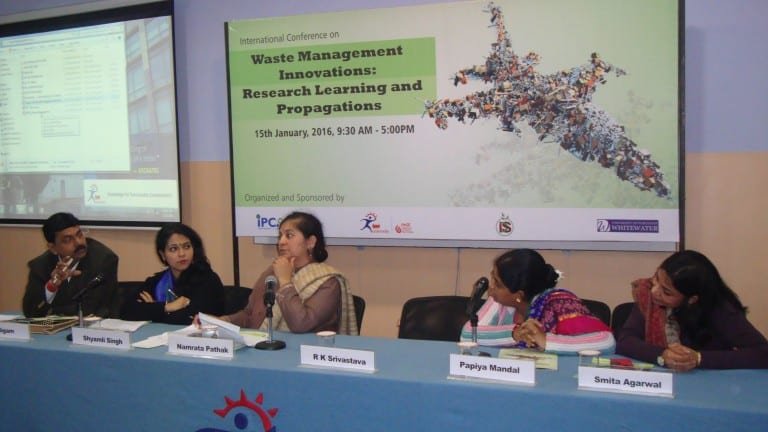On January 15, 2016 we had a productive conference entitled Waste Management Innovations: Research, Learning and Propagation. This event was organized and sponsored by TERI University, the India Pollution Control Association (IPCA), India Development Service (IDS), and the University of Wisconsin-Whitewater. The conference drew NGOs, academics, research  scientists, government officials, students, and even rag-picker union officials. It also provided a unique networking opportunity, laying the foundation for new research endeavors and development projects.
scientists, government officials, students, and even rag-picker union officials. It also provided a unique networking opportunity, laying the foundation for new research endeavors and development projects.
 scientists, government officials, students, and even rag-picker union officials. It also provided a unique networking opportunity, laying the foundation for new research endeavors and development projects.
scientists, government officials, students, and even rag-picker union officials. It also provided a unique networking opportunity, laying the foundation for new research endeavors and development projects.
In India and in other developing countries, waste will continue to grow exponentially, fueled by the growing population, migration to cities, and increased standard of living. Instead of viewing this growth as an economic, ecological, environmental, and social disaster, it could be viewed instead as a unique opportunity to thrive if we simply stop viewing waste as a burden and begin seeing it as a valuable commodity—a commercial product which can be mined, sorted, extracted, processed, and transported. A successful transition to this new perspective requires an understanding of the underlying factors, systems, forms of intervention, and possible outcomes.
The transformation of waste to product requires:
- community support
- an established segregation/sorting/extraction process
- a degree of scientific and managerial sophistication
- availability of land
- the ability to adapt to variations in culture and gender




